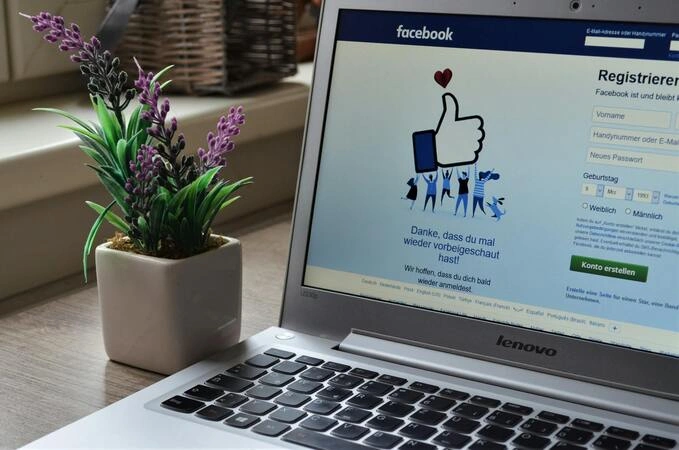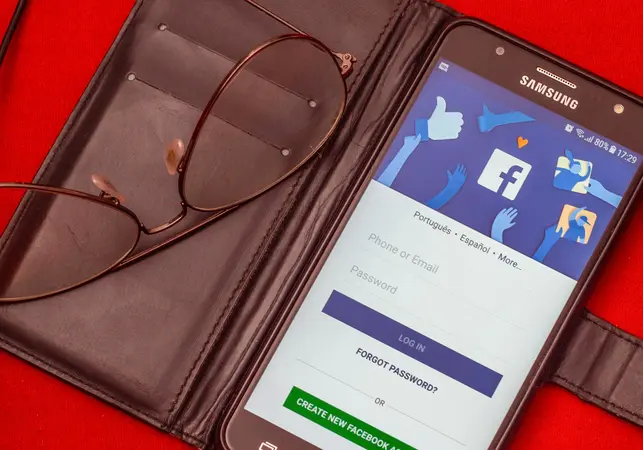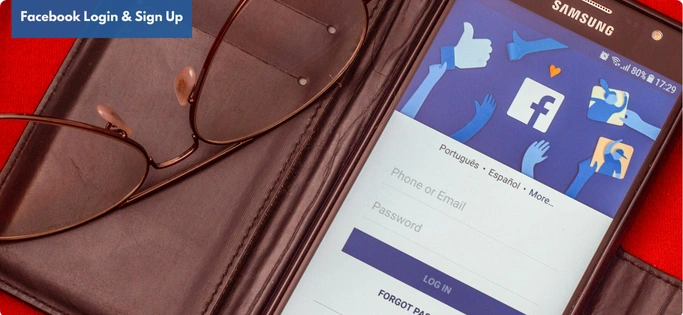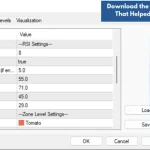Facebook login problems can stop you when you need to connect with friends and family.
Have you ever tried to log into Facebook and found yourself stuck, not knowing what went wrong?
You’re not the only one.
Issues like forgotten passwords, login code errors, and website access glitches trip up users every day, especially when security updates and browser quirks get in the way.
But what if you could fix these problems without wasting time or relying on customer support?
Imagine regaining full access to your Facebook account in minutes, no confusion, no delays, and no guesswork.
In this article, I’ll show you how to troubleshoot the most common Facebook login issues with clear, practical steps.
You’ll learn how to:
- Fix Facebook login website access issues
- Recover a forgotten Facebook login account password
- Solve problems with Facebook login codes
- Avoid common mistakes when using Facebook login through Chrome extensions
- Stay securely connected without future lockouts
By the time you’re done, you’ll be able to handle Facebook login problems quickly and get back to connecting with the people who matter most.
Key Takeaways
- Most login issues resolve with browser cache clearing
- Two-factor authentication prevents 99% of hacking attempts
- Password managers eliminate forgotten password headaches
- Recovery options work even without email access
Understanding How Facebook Login Works
Your Facebook account connects you to friends, family, businesses, and communities. That’s why getting locked out feels so disruptive; it cuts you off from your digital social network instantly. When you can’t log in, you miss important updates, messages, and events that may impact your personal or professional life.
More importantly, login problems often signal potential security vulnerabilities that need addressing. Taking the time to fix these issues properly doesn’t just restore your access, it strengthens your account against unauthorized access attempts. With digital identity theft on the rise, properly securing your Facebook login protects your personal information and prevents impersonation.
Some users report issues signing into Facebook Messenger, especially when their password is incorrect or if they don’t have the app installed.
If you’re having trouble with the app or just prefer using a web browser, you can, open messenger in browser and skip the app entirely. I’ve broken it down step by step in this guide, it’s quick and works on both desktop and mobile.
How to Use Facebook Login Without Getting Locked Out
The path to hassle-free Facebook access begins with understanding how the official login process works. By following established procedures and avoiding common pitfalls, you can prevent most access problems before they start.
Quick Steps for the Official Facebook Login Page
Step-by-Step Facebook Sign-Up for desktop users:
- Always start at the official source: Visit facebook.com or use the official Facebook app from your device’s app store
- Verify the connection is secure: Check that the URL shows “facebook.com” with a lock icon in your browser
- Enter your credentials carefully: Use your email, phone number, or username in the first field, followed by your password
- Check “Remember me” settings: Avoid the “Keep me logged in” option on shared computers

Beyond that, consider using the Facebook login feature on trusted third-party sites rather than creating new accounts everywhere. This “Login with Facebook” option uses your Facebook credentials securely while limiting password fatigue across multiple platforms.
Common Errors That Block Access and How to Fix Them
If you’re experiencing Facebook login troubles, try these proven solutions:
- Password rejection: Use the password reset option immediately rather than making multiple failed attempts
- Connection problems: Switch between wifi and mobile data to determine if connectivity is the issue
- Browser compatibility: Update your browser to the latest version or try an alternative browser
- Cache interference: Clear your browser’s cache and cookies this often resolves the most stubborn login issues
Old Facebook Login vs. New Facebook Login: What’s Changed in 2025?
Facebook’s login interface undergoes regular updates that can confuse longtime users. The 2025 changes represent significant shifts in how users access their accounts, with both security and usability improvements.
Why You Might Be Seeing the “Old” Facebook Login Interface
If you’re still encountering the old Facebook login screen, several factors might explain this experience. Facebook often rolls out interface changes gradually across regions and user groups. Your location or account age might place you later in the update queue than others.
Device compatibility issues can also trigger Facebook to display its older login version. Outdated operating systems or browsers may not support newer interface elements, causing the system to default to the previous design. This happens most commonly on older smartphones or computers running legacy software.
Meanwhile, some users deliberately choose to use the old Facebook login through specific URL parameters or mobile settings. Facebook occasionally allows this backward compatibility for accessibility reasons, though these options typically phase out eventually as new systems become standardized.
What the New Facebook Login Update Means for Users
The new Facebook login introduced in 2025 emphasizes enhanced security while streamlining the access process. Most noticeably, the updated interface incorporates biometric authentication options on compatible devices, allowing fingerprint or facial recognition to supplement or replace traditional passwords.
On top of that, the login flow now includes more robust verification steps that vary based on risk assessment. When Facebook detects unusual login attempts, like accessing from a new location or device, it may trigger additional verification steps beyond password entry. While these extra steps might seem inconvenient, they significantly reduce unauthorized account access.
Facebook has also integrated its login system more closely with Instagram and other Meta platforms, creating a more unified experience. Users can now switch between services more seamlessly without repeated authentication, though each platform maintains distinct privacy controls.
Facebook Login Account Password Not Working? Do This First
Password issues represent the most common Facebook login roadblock. When your carefully typed password keeps getting rejected, take these immediate steps before panicking.
Resetting Your Facebook Password Without Email Access
If you’ve lost access to both your password and recovery email, follow this process:
- Click “Forgot Password” on the login page
- Select “No longer have access to these?” when prompted for email recovery
- Choose either trusted friend verification or phone verification
- Follow the specific instructions for your chosen recovery method

Facebook’s trusted friend verification lets you select 3-5 friends who receive special codes they can share with you. Combined, these codes allow you to reset your password and regain access without your original email.
Why Your Facebook Account Won’t Accept Your Password
Several technical issues can prevent Facebook from recognizing your correct password:
- Caps Lock enabled: Passwords are case-sensitive, so “Password123” differs from “password123”
- Autofill problems: Browser features sometimes insert outdated passwords or add extra spaces
- Keyboard settings: Language settings can introduce invisible characters or substitute similar-looking letters
For persistent problems, try these solutions:
- Manually type your password instead of using autofill
- Check keyboard language settings if you use multiple layouts
- Reset your password as a last resort using the recovery options
Can You Log in at www.free.facebook.com? Here’s the Truth
The term “free Facebook” creates confusion for many users searching for login options. Understanding what this service actually offers helps avoid potential security pitfalls.
What is Free Facebook and When to Use It
Free Facebook (free.facebook.com) is a legitimate text-only version of the platform with these key characteristics:
- Data-light design: Shows basic content without images or videos
- Partnership-based: Works through agreements between Facebook and mobile carriers
- Geographically limited: Available primarily in developing regions
- Functionally restricted: Offers core features with visual elements as placeholders
This service is ideal for:
- Travelers in areas with poor connectivity
- Users with extremely limited data plans
- People in regions where data costs are prohibitively expensive
Risks of Using Third-Party Facebook Login Pages
BE AWARE of unofficial “free Facebook” sites! These dangers include:
- Phishing attempts are designed to capture your login credentials
- A malware installation that can track all your online activities
- Account compromise leading to identity theft or misuse
Safety Guidelines:
- Only use these official domains:
- facebook.com
- m.facebook.com (mobile)
- free.facebook.com (official data-saving version)
- Verify that the lock icon appears in your browser before entering credentials
- Never trust sites promising special access or “hacked” accounts
Signup Help: Creating a Facebook Account That Won’t Get Flagged
Setting up a new Facebook account requires navigating several potential pitfalls that could trigger automatic security flags or verification holds.
Avoid These Signup Mistakes That Trigger Facebook Review
Facebook’s algorithms closely monitor new account creation to prevent spam and fake profiles. To avoid automatic flagging:
- Don’t use temporary emails or disposable phone numbers
- Avoid creating multiple accounts from the same device or network
- Complete essential profile fields after signing up
- Upload a profile picture that clearly shows your face
- Add basic information like general location and interests
These red flags almost guarantee an account review:
- Using VPN services during the signup process
- Adding hundreds of friends immediately after creation
- Posting promotional content as your first activity
Choosing the Right Email and Password Combo
For a smooth Facebook signup experience:
- Use your primary personal email for account recovery and alerts
- Create a strong, unique password that you don’t use elsewhere
- Include a mix of uppercase, lowercase, numbers, and special characters
- Avoid personal information like birthdays or names in your password
Password Best Practices:
- Use a memorable phrase with strategic substitutes
- Consider a password manager to generate and store complex passwords
- Test password strength before finalizing your selection
Account Locked or Suspended? Fix Your Facebook Login Access Fast
Discovering your Facebook account has been locked creates immediate stress, but understanding the recovery process helps restore access quickly.
Steps to Recover a Temporarily Blocked Account
When faced with a Facebook account block:
- Follow on-screen instructions carefully and completely
- Wait out temporary restrictions (typically 24-48 hours)
- Complete security checks when prompted during login attempts
- Review recent activity that might have triggered the block
For suspicious activity blocks, Facebook typically requires:
- Photo identification verification
- Friend recognition in images
- Confirmation of recent posts or messages
- Verification codes sent to recovery contacts
How to Prove Your Identity to Facebook Support
For serious account recovery requiring identity verification:
Required Documents:
- Government-issued photo ID (driver’s license, passport, national ID)
- Documentation connecting your legal name to your account name
- Clear, readable images of your identification
Submission Process:
- Access the specialized identity confirmation form through Facebook’s help center
- Upload clear photos of your identification documents
- Explain any name discrepancies between your ID and account
- Be patient verification can take several days to process
Secure Your Facebook Login: 3 Must-Do Settings Today
Proactive security measures prevent most login problems before they start while protecting your personal information from unauthorized access.
Turn on Two-Factor Authentication (2FA)
Protect your account with these two-factor authentication steps:
- Go to Settings > Security and Login > Two-Factor Authentication
- Choose your preferred 2FA method:
- Authentication apps (most secure)
- Text message codes (convenient but less secure)
- Security keys (hardware-based protection)
- Store recovery codes in a safe offline location
Why authentication apps are superior:
- Work without cell service or SMS access
- Generate codes that refresh every 30 seconds
- Can’t be intercepted like text messages
- Provide backup options across multiple devices
Spot and Stop Suspicious Login Attempts Automatically
Strengthen your account’s defense system with these settings:
- Enable login alerts to receive immediate notifications of unusual access attempts
- Set up trusted contacts 3-5 friends who can help you recover access
- Regularly review active sessions through Settings > Security and Login
Critical security actions:
- Log out unused devices through the Where You’re Logged In section
- Change your password immediately if you spot unfamiliar sessions
- Update recovery information when your contact details change
Final Thought About Facebook Login & Sign Up
Facebook login and security practices continue to evolve to combat new threats while maintaining accessibility. Understanding these fundamental access procedures helps ensure you never lose connection to your social network. By implementing strong passwords, enabling two-factor authentication, and knowing recovery options, you’ll significantly reduce login headaches.

The platform’s security measures exist to protect your personal information and social connections from increasingly sophisticated attacks. What might seem like inconvenient login hurdles actually serve as critical safeguards for your digital identity. Taking time to properly secure your account today prevents more serious problems tomorrow.
For lasting Facebook access peace of mind, regularly update your recovery information, recognize official Facebook domains, and stay alert to phishing attempts. These simple habits transform your Facebook experience from frustration to seamless connectivity. Keep these strategies handy, your future self will thank you when login problems never materialize.











qfqkjoojyfdntngkqtlrsnfztyvqdj
skrdfmlgmttekowrxdkxzkhwrillku